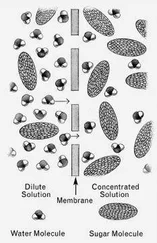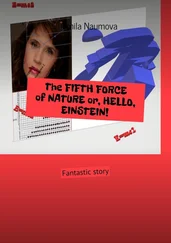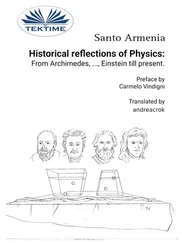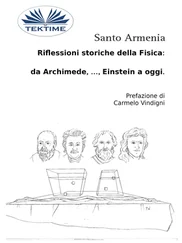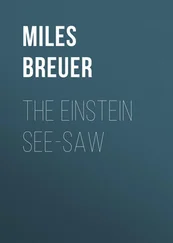Discussion of physics and funding continued for more than an hour. Tern was still staring at the bank draft on his desk when Roger left.
ROGER LOOKED OUT THE WINDOW OF THE ANCIENT BUT still elegant British Airways Concorde as it approached the Dulles Airport. In the distance he could see the Washington Monument and the Capitol Building. He could also see his face reflected in the window surface. He looked very distinguished with the touch of gray at the temples, a distinguished business figure of perhaps fifty, rather than his actual thirty-two.
With the chameleonlike body control he had learned, he could alter his weight, height, facial characteristics, even his fingerprints and retinal patterns, to match the persona he was assuming that week. Hair color was harder because of the growing time, but he had learned a few hairdresser tricks.
His present persona, one Roger Fulton, had been tied up for the past month in London attempting to streamline and shape their burgeoning financial empire. That had been fairly demanding, and he was feeling a bit out of touch with the basic work of dealing with the SSC problem.
Roger glanced at the person in the other seat. She was sleeping, but just to be sure he turned the screen of his lapstation so that it was visible only to him. Then, to refresh his memory, he decrypted the master strategy file and studied it. It summarized the plan they had hammered out two years ago in Houston, as they had struggled through the difficult initial problems of creating new identities, new appearances, new personae for themselves. The file was short and to the point. It read:
Basic Strategy
1. Generate wealth for power base; mining, oil, biotechnology, investments.
2. Create a business organization with strong investigative and lobbying capabilities.
3. Initiate Planck-scale physics research.
4. Alter Bush appointments in 198 8–8 9: Vice President => not Dole; Energy Secretary => not Deutsch; Science Advisor => not Bromley.
5. Arrange meetings between potential SSC congressional opponents and prominent physicist SSC critics.
6. Create uncertainty over SSC magnet design and project management; conservatism => high cost.
7. Increase emphasis on foreign SSC participation; simultaneously block Japanese $1 billion contribution.
8. In 19 91 extend the recession; elect Democratic President and new congressmen in 19 92.
9. Kill the SSC project in Congress.
They had been doing quite well with item one. In London last week Roger had calculated that the net worth of their holdings, all carefully concealed by a network of interlocking corporations and holding companies, was, at least on paper, moving past the $4 billion mark. The multifaceted business organization was also developing well under George’s guidance. He seemed to have real talents as an entrepreneur and organizer. With the creation of the Iris Foundation, money and guidance had been given to a few physicists working the right areas for item three, and this work was proceeding. They had succeeded with the first part of item four, and the tactic was working well. Unlike Dole, Vice President Quayle so far had shown little interest in scientific projects and absolutely no interest in the SSC. His attention was focused exclusively on NASA and the U.S. manned spaceflight program. Roger smiled, remembering the Martian canals.
The appointment of the Secretary of Energy was their next hurdle. All of the Cabinet slots of the Bush Administration except Energy had been filled for almost a month. The politically oriented press was awash with wild rumors about those being considered for Energy Secretary: John Deutsch, Lee Thomas, General Abrahamson, and even Arthur Schlesinger. Roger was very curious about what George had been doing about the Energy appointment. Well, he would learn soon enough. He folded the lapstation and slid it under the seat in front of him, then pulled his own seat-back forward for the landing.
* * *
Roger knocked at the hotel room door. “How was your flight?” George asked as he ushered Roger in.
“The flight itself was quick and efficient,” said Roger. “Getting here from Dulles was a problem. I wish they permitted Concorde flights from Heathrow to Washington National. One spends longer on the ground than in the air. How’s it going here?”
“Well, the latest Administration budget puts the SSC cost at $5.9 billion, with completion in 1999. The DOE has finally discovered inflation and that they’ll need some detectors for the machine. They’re still low-balling the detector cost. I think it’s intentional.”
Roger nodded. “And what’s the news about the appointment of the Secretary of Energy?” he asked.
“Bush is still hanging back. My contacts at the Pentagon have been working hard to dissuade him from appointing John Deutsch, who was in the lead for a while. They’re pushing for someone with a military background instead. Their argument is that despite Deutsch’s stint at the Pentagon, he doesn’t have the background to deal with the weapons aspects of the DOE and doesn’t have the command skills to shake up the department and clean up the messy leftovers from the nuclear weapons program. I think the argument is working. I’m expecting a phone call today announcing the decision.”
“Who’s the military person of choice? I gather General Abrahamson has been mentioned.”
“I personally arranged for ‘a highly placed source’ to leak that to The Wall Street Journal,” said George. “It’s amazing what they will print when they hear a good rumor. But it’s pure smoke. The Pentagon people are actually pushing Admiral James D. Watkins. He was a Rickover protege from the nuclear submarine program, a specialist in shipboard nuclear reactors. He was Chief of Naval Operations until three years ago when he retired. Last year he headed a presidential commission on AIDS and did a good job in bulldozing a difficult independent-minded committee into producing the report the Reagan Administration wanted.”
“Impressive,” said Roger. “But what will he do for us and our SSC problem?”
“My investigators report that he’s a control freak, a safety fanatic, and is always very determined to get his own way on everything he touches. During his Navy career, he would delegate the responsibilities so that everyone worked directly for him and reported to him on everyone else. He also has a reputation for being extremely conservative in the administration of his projects. He appoints only people that he’s previously worked with. He takes no chances, incurs no risks. On the ships he commanded safety was the supreme watchword. He installed extra levels of procedures and documentation in the safety area. We picked up a lot of bitching from former crew members.
“One of his former subordinates told me an apocryphal joke about the admiral that had been making the Navy rounds. The story goes that when he was Chief of Naval Operations he was invited to deliver the commencement address at a high school in Virginia near his home. He accepted, but then forgot all about it. Then one Saturday morning the principal of the high school called him to say that the commencement exercises were to start in an hour, and he was coming by in his car to pick up his commencement speaker. The admiral was horrified. He hadn’t prepared a speech, and he didn’t have the faintest idea what to say. The trip to the high school was a nightmare, with the admiral in a blind panic, wracking his brain for any idea he might use in his speech. They arrived, parked in front of the auditorium, and rushed in. As they were approaching the front doors of the auditorium, the admiral noticed that each of the doors was labeled with a large sign that said ‘Push.’
Читать дальше




